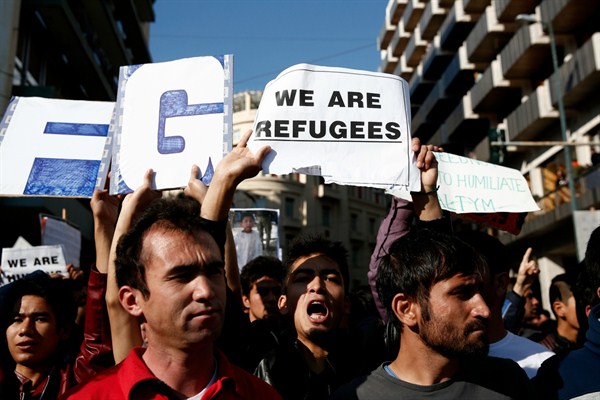The cynical deal struck between the European Union and Turkey aimed at stemming the flow of refugees into Europe is a sign of desperation. It is flawed on several levels, and is likely to do harm to Europe’s image as a champion of international norms and Western values. Ironically, it will also probably do more harm than good to any hopes Turkey may still harbor for EU membership. But for all its shortcomings, the deal is better than doing nothing, and its effective implementation will help restore Europe’s self-confidence and Turkey’s role as a regional problem-solver.
The deal finalized Friday in Brussels to help curtail the irregular migration from Syria via Turkey to the EU went into effect this week. There is a careful balance of commitments from the two sides: an even swap of refugees and migrants currently in Greece to be returned to Turkey, with Syrian refugees currently in Turkey being permitted into the EU through a more formal screening process. In addition, Turkey will work to prevent the emergence of new sea and land routes, in exchange for EU efforts to speed up 6 billion euros in aid earmarked for refugees already in Turkey, and to accelerate a visa-liberalization policy for Turks to travel to Europe. The deal was painfully negotiated over many months, with German Chancellor Angela Merkel playing the key role, at considerable political risk.
There are obvious reasons why this deal will be difficult, if not impossible, to implement. Human rights and legal experts question whether it is consistent with binding EU and international laws and treaties; court action could delay some of its provisions. As a practical matter, staffing the necessary bureaucracy to carefully consider individual cases and determine who will be sent back from Greece, and who in Turkey will be accepted for asylum in Europe, is a daunting challenge. As with United Nations peacekeeping, the recruiting, vetting and deploying of hundreds of trained staff to difficult assignments cannot be done quickly. And the refugees and migrants themselves are independent actors, who may find new ways to thwart the deal in practice.

